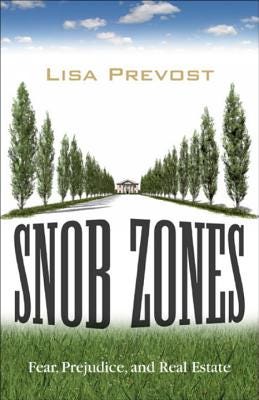Outworking Stephen King
What Writing Two Million Words Taught Me About Doing the Next Right Thing.
I hate my business coach. Well, one of them anyway. And honestly, not really.
He asked me what was going on with the newsletter because the issues have seemed a bit sporadic lately. And well, they have been. He tells me too much truth, and that is why I’m upset with him, but he also says that’s his job. So really, it’s me I’m upset with.
But. Look.
My most recent numbers from Grammarly between September 22-28, logged
156,194 words written—that’s 96% more productive and 94% more accurate than other users. And, I used 989 unique words, 61% above Grammarly's average user.
Probably, more amazing is that I’ve written 1,872,257 words since February 16.
That’s just been for this newsletter.
My coach asked me what was the one thing that drove most of my business, and I said, “Well, the newsletter.”
“So why have you forgotten it? What’s made you not love the newsletter anymore?”
I was not prepared for that question because I didn’t have an answer.
His next question was even harder. “What do you hope to accomplish with the newsletter? What do you want Coffee with Steve to become?”
I answered that question probably too quickly. “I’d like to see a couple nonfiction books come out of it.”
“Do you have any idea how many words you’ve written so far?”
I already blame the coach for getting me to sign up for Grammarly. I kept getting texts from readers about my bad grammar (here’s looking at you, Mike). I was a bit offended, to be honest. I hold three English degrees, two of them master’s. I should not need a tool like Grammarly to fix my grammar. Plus, the grammar banter was fun.
But the coach was right. I was producing so much content, it was difficult for me to keep up with the copy-editing. I missed a lot of stuff. And I lean into AI for so much already, why was I indignant about using the same tools for grammar?
Story continues after the book ad…
The Blueprint
Half blueprint, half confession. Irreverent. Caffeinated. Built to outlast hype.
☕A Coffee with Steve publication.
Snob Zones: An exploration of the corrosive effects of overpriced housing, exclusionary zoning, and the flight of the younger population in the Northeast
Winner of the 2014 Bruss Silver Award and First-Time Author Award from the National Association of Real Estate Editors
Towns with strict zoning are the best towns, aren’t they? They’re all about preserving local “character,” protecting the natural environment, and maintaining attractive neighborhoods. Right?
In this bold challenge to conventional wisdom, Lisa Prevost strips away the quaint façades of these desirable towns to reveal the uglier impulses behind their proud allegiance to local control. These eye-opening stories illustrate the outrageous lengths to which town leaders and affluent residents will go to prohibit housing that might attract the “wrong” sort of people. Prevost takes readers to a rural second-home community that is so restrictive that its celebrity residents may soon outnumber its children, to a struggling fishing village as it rises up against farmworker housing open to Latino immigrants, and to a northern lake community that brazenly deems itself out of bounds to apartment dwellers. From the blueberry barrens of Down East to the Gold Coast of Connecticut, these stories show how communities have seemingly cast aside the all-American credo of “opportunity for all” in favor of “I was here first.”
Prevost links this “every town for itself” mentality to a host of regional afflictions, including a shrinking population of young adults, ugly sprawl, unbearable highway congestion, and widening disparities in income and educational achievement. Snob Zones warns that this pattern of exclusion is unsustainable and raises thought-provoking questions about what it means to be a community in post-recession America.
Order Snob Zones today at Bookshop.org
Bookshop.org works to connect readers with independent booksellers all over the world. Local bookstores are essential community hubs that foster culture, curiosity, and a love of reading, and Bookshop.org is committed to helping them thrive. Every purchase on the site financially supports independent bookstores.
When I told him I was staring down at hitting two million words by the end of the year, he was flabbergasted. When I told him, no, that was just for the Substack newsletter, and that my novel will also be finished by early January, he was even more flabbergasted.
Coach opened ChatGPT and asked what the 1.87 million number meant. I already knew, of course.
Stephen King famously writes 2000 words a day, seven days a week. That’s about 730,000 words a year. Danielle Steel claims 20 to 22 hours a day during a book sprint, producing around five books per year, roughly 1 to 1.5 million words annually.
A full-length novel runs about 80 to 100k words. David Foster Wallace’s Infinite Jest? 540k. 1.87 million words equals roughly 18 to 20 novels.
I’m working at novelist throughput every single month. King-level daily consistency. I’m operating as a professional language producer whose medium just happens to include both narrative and negotiation. If we measure by raw language generation, I’m producing the equivalent of two to three novels a month.
Honestly, that 1.87 million number is difficult for even me to believe.
I’ve been told over and over in the last five years of running a small business that the way you win is in the small, consistent actions you take day in and day out.
Both my real estate coach and my SBDC business coach have preached this: do the next right thing; focus on the repeatable small habit. I’ve read this in The One Thing, in The Millionaire Real Estate Agent. I’ve read the mantra in All it Takes is a Goal, Atomic Habits. Heard the refrain in-person live Bold sessions, online mindset and growth webinars. YouTube videos, TED Talks. The James D. Shaw’s Pivot Shift community.
Success is found in small, repeatable, daily habits.
Maybe I’m bragging a little when I say I’ve written 1.87 million words since February. And that’s okay to brag a bit, but what I’m really saying is just to do the next small daily habit.
But the gospel is so well rehearsed, the phrase becomes almost meaningless. Like saying you should drink more water, or get your 10,000 steps in a day.
The results never show up the very next day. The results always appear after accumulation, and it is in that moment when you look back and you say and everyone else around you says wow look at what you’ve accomplished.
“Good writing is always about things that are important to you, things that are scary to you, things that eat you up.” – John Edgar Wideman
🌐 Explore more at stevebargdill.com
Coffee With Steve is free. If you enjoyed this post, you can tell Coffee With Steve that their writing is valuable by spreading the word and sharing with a friend.







